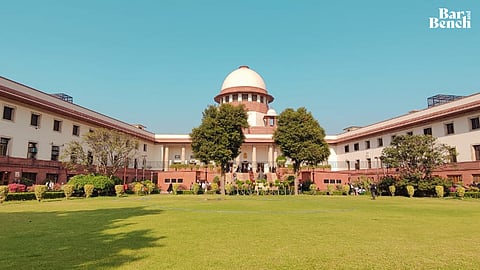
- News
- Columns
- Interviews
- Law Firms
- Apprentice Lawyer
- Legal Jobs
- हिंदी
- ಕನ್ನಡ

The Supreme Court on Friday allowed a plea by a Delhi judicial officer to expunge adverse remarks made against him by the Delhi High Court after he criticised the Delhi police in a judicial order.